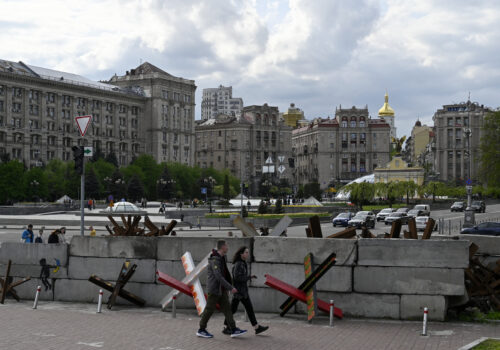Civil society in Ukraine continues to drive the country’s Euro-Atlantic trajectory from the ground up. Dynamic leaders and organizations are dismantling the old Soviet-era institutions and replacing them with modern, uniquely Ukrainian entities. Government bodies also play a significant role in reshaping independent Ukraine. The Ukrainian Culture Fund, state broadcasting company Suspline, state-owned energy company Naftogaz, and others have evolved into more effective catalysts for change in Kyiv and beyond.
Since 2019, what substantive changes has civil society produced in Ukraine? How can Ukrainian NGOs and reform-minded government institutions work together to create a stronger, more democratically vibrant country?
Yevhen Hlibovytsky, partner at Ukrainian consulting firm Pro Mova, joins Melinda Haring, deputy director of the Atlantic Council’s Eurasia Center, for a discussion on the evolution of Ukrainian civil society.
spotlight

Resilience in the face of adversity
Ukraine’s transformation
Ukraine has moved tentatively toward an open society and market economy since independence. The country has held several democratic elections and made halting progress in addressing corruption and state control in its economy. Since the 2014 Maidan Revolution, Ukraine has undertaken significant governance and economic reform and moved decisively toward a Europe-Atlantic foreign policy. Since 2022, Ukraine has resiliently continued to advance some reforms despite fighting for its very existence against the full-scale Russian invasion.
RELATED experts

The Eurasia Center’s mission is to promote policies that strengthen stability, democratic values, and prosperity in Eurasia, from Eastern Europe in the West to the Caucasus, Russia, and Central Asia in the East.




